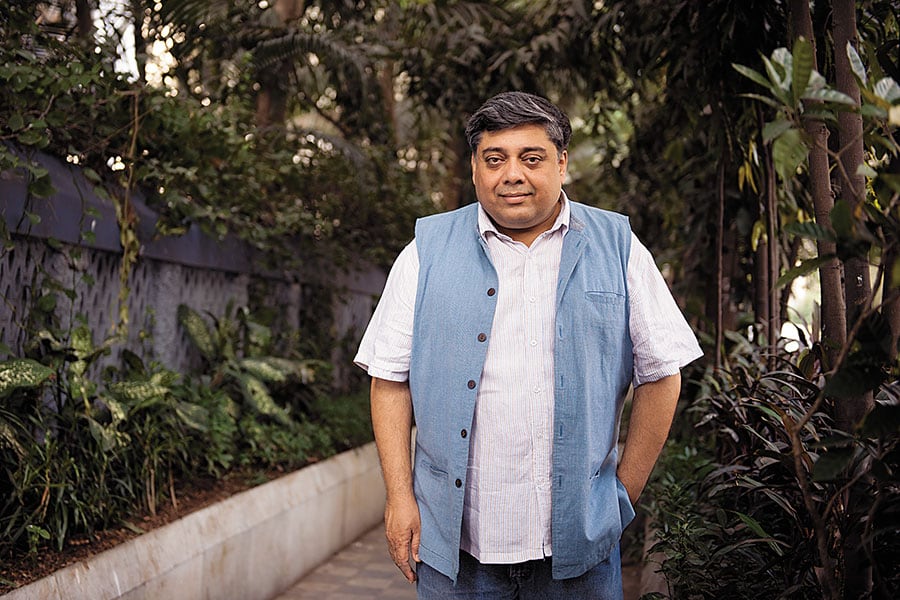Tata Trusts is helping innovators complete the lab-to-market cycle
Social Alpha is redefining philanthropy by helping entrepreneurs find funding and guidance to scale up


 Social Alpha CEO Manoj Kumar always wanted to work on a startup ecosystem that would deliver social goals
Social Alpha CEO Manoj Kumar always wanted to work on a startup ecosystem that would deliver social goals
Image: Mexy Xavier
For Manoj Kumar, co-founder and CEO, Social Alpha, the idea of creating a startup ecosystem that would deliver social goals was always at the back of his mind. In 2013, while doing the Advanced Management Programme at Harvard Business School, he met R Venkataramanan, now the managing trustee of Tata Trusts. Somewhere, Venkataramanan’s interests in philanthropy and Kumar’s interest in entrepreneurship crossed paths. “I asked myself what can be done to ensure that startups in the social sector remain sustainable?” says Kumar.
In 2015, Tata Trusts set up the Foundation for Innovation and Social Entrepreneurship, branded as Social Alpha, to promote socially-relevant innovations and entrepreneurship. One of the first NGOs Social Alpha incubated was Hasiru Dala: It transformed the Bengaluru-based non-profit, which improves the lives of ragpickers through its waste management services, into a for-profit venture.
Social Alpha works with the idea that innovation, incubation and investment together can solve problems. Says Kumar, also head-innovation and entrepreneurship with Tata Trusts, “Once you have innovated, one needs to check if it is validating the hypothesis and the best model to implement this innovation is entrepreneurship.”
In the commercial space, the lab-to-market ecosystem is well developed. But it is not the case in the social sector. Social Alpha handholds a startup through its entire lifecycle, from innovation to market-readiness. “We look for innovators and entrepreneurs who are on a mission to create an impact, help them with incubation, lab access, market access, real estate solutions (they can work in our office) and most importantly we help them with seed capital,” says Kumar.
As a technology business incubator, approved by the central government’s department of science and technology, Social Alpha incubates in two ways: One, if the company is set up already, it is incubated as a startup and for innovators or entrepreneurs with an idea, a programme called ‘Entrepreneur in Residence’. “While we handhold them through the innovation stage, we also help them understand how to set up a sustainable business,” adds Kumar.
While venture capitalists do fund startups in the social sector, Social Alpha’s focus is more philanthropic. “Our priority is social impact, followed by financial sustainability and then scale. We co-create a milestone-based social impact plan with the founders and a business plan to support that impact plan,” says Kumar. As of now it has 34 incubatees (of which they have invested in 26), with a mix of both for-profit and not-for-profit.
Says Manas Nanda, founder, Bubblenut Wash, “There was a sense of empathy from Social Alpha [unlike other investors] for the cause and for the entrepreneur. As compared to a traditional VC or angel investor, Social Alpha was looking at 10-12 years when it came to getting money back. Apart from networking within the ecosystem, they helped us with grants from the government of India.”
Social Alpha has been working in sectors like waste management, education, sanitation, water, health care and energy access. Going forward, Kumar hopes to explore sectors such as medicine, vaccines and drugs. Some of the incubatees include Kitablet, Kamal Kisan, Bubblenut Wash, Innaumation, Farmveda and Aarna Biomedical Products.
What are the factors Kumar and his team look at before taking a startup on board? “The first is the problem being addressed and what makes the idea stand out. This is followed by a technical evaluation and analysis of the company’s business plan,” says Kumar. The funding provided to each startup ranges from ₹10 lakh to ₹1 crore.
Till date, Social Alpha has invested $5 million. Besides, it helps the startups to raise funds. The initiative will continue to remain a not-for-profit but encourages incubatees to become for-profit so they can be self-sustainable. Philanthropy, says Kumar, is now redefining itself. “We believe philanthropy is all about creating an ecosystem so that entrepreneurs and innovators can grow.”
First Published: Dec 24, 2018, 12:30
Subscribe Now